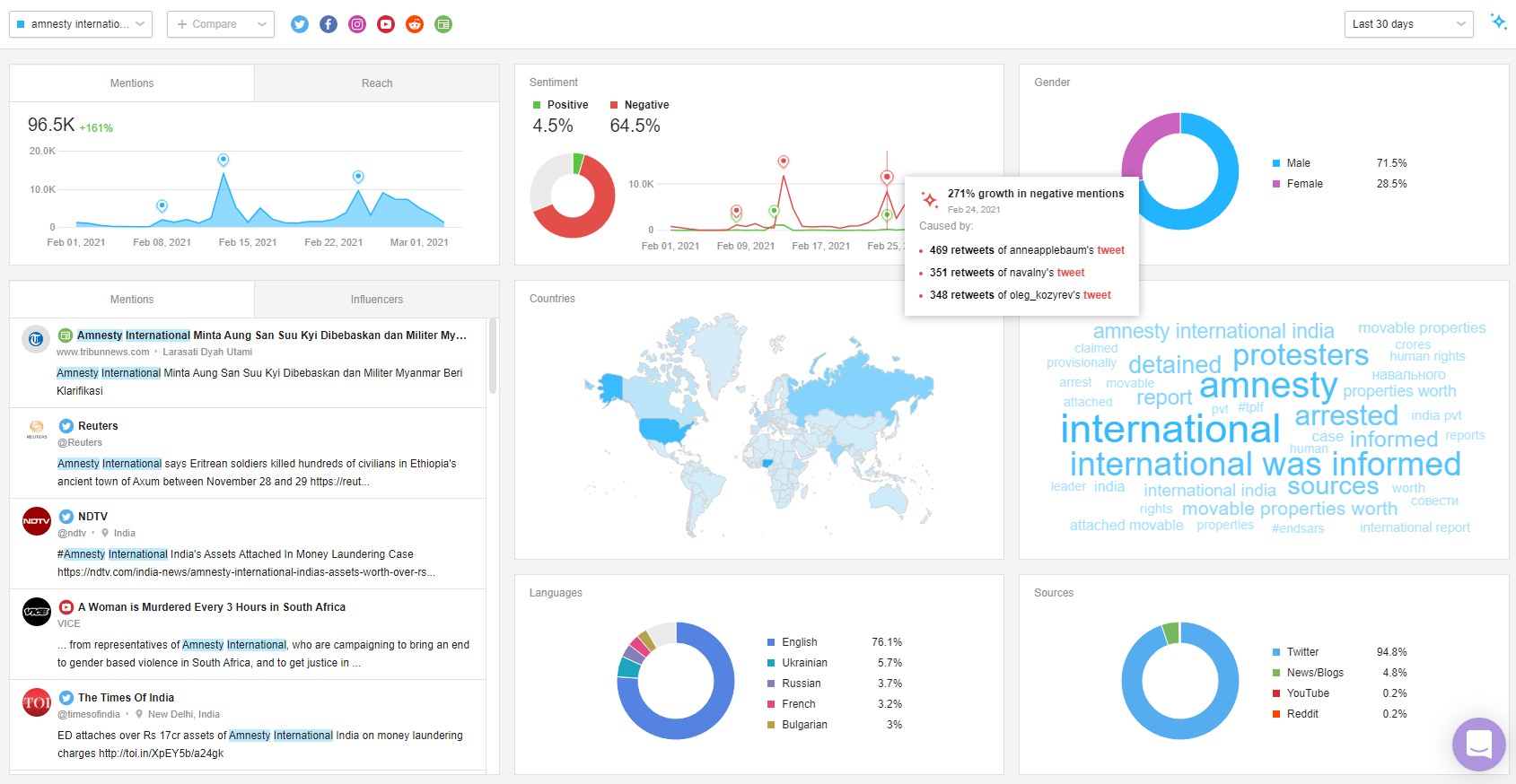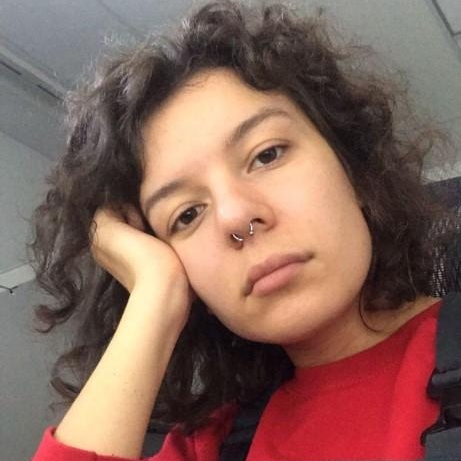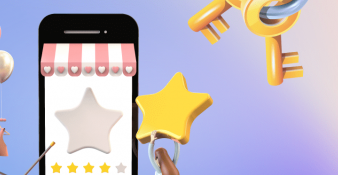What is market research: interview with Jake Pryszlak, founder of ResearchGeek

Have you ever heard the saying "Knowledge is power"? Well, we at Awario reinterpret it as "Knowledge about your audience is marketing power". But how do you get to know your audience?
The answer is market research! Awario's social listening capabilities are often used to find out more about your target audience or their feelings about your product, so we especially care about this topic. That's why we invited professional market researcher Jake Pryszlak, the founder of the ResearchGeek website to talk about market research.
Could you tell me how you got into market research? Why did you choose this niche?
I was lucky to have a Master’s in research for a company called England Netball. They look after all of the competitors and international netball teams in the UK. It was really research-focused, so I worked with the commercial team there looking after commercial research and understanding who plays netball, why do they play it and how can they play more often. It was really fun and really engaging, and I could see the return on investment for research.
I fell in love with research there and created the blog called ‘Research Geek’. To be completely honest with you, I created it to just get a bump on an interview I was going to take. I just wanted to feel very opinionated and now it has grown into what it is today.
Nowadays I’m working with different partners, different brands, and different technology providers around the world and talk to them about market research.
Is there any specific kind of market research that you like or a specific niche that you love to research?
Not necessarily. I’m a big fan of the latest technology: different tools, and gadgets that you can use. I need to make sure everyone is engaged because not everyone likes research at the end of the day. Some clients will hide behind the table and say they don’t want anything to do with numbers or anything to do with data so you need to find new ways and new tools to make it fun for them and to keep their minds on the project.
The main part that I really enjoy is making sure that the client is really getting their return on investment by understanding who their audience is and what they are about. With that information, they can tailor their product and what they are offering to different people.
I like social listening in that sense because it’s very engaging. It feels like you are talking to people without actually talking to them.
Social listening is very interesting at the moment because, as you said, you don’t actually have to ask any specific questions. You gain interesting opinions from people about a specific topic, and not just in English languages, but in languages all around the world. It’s a great tool that is used more and more by companies and brands nowadays.
Social listening is very interesting at the moment because you don’t have to ask any specific questions. You gain interesting opinions from people about a specific topic, and not just in English languages, but in languages all around the world.
What are the main principles of market research? What do researchers need to remember when they conduct market research?
I think there are two main principles. The first one is called quantitative research where you’re mostly dealing with numbers. It’s generally like an online survey where you’re asking yes or no questions. Oftentimes you see these “strongly agree to strongly disagree” types of questions.
The other principle is around qualitative research. It’s more like one-on-one interviews or a focus-group setting where we try to discuss and delve into a particular topic to understand it even more.
Nowadays I think we are getting more challenged on GDPR and data protection laws. That's why we need to make sure that people who are participating in research know why they are participating and where this information is going and how it’s going to be used.
By signing up I agree to the Terms of Use and Privacy Policy
What are the biggest mistakes people usually make when it comes to market research?
Some clients of mine might tell me off for sharing those secrets!
I think one common mistake many market researchers come across is when clients say “Oh, in the previous study we got 2,000 responses so we are looking to get 2,500 responses next time”. And when you think about it a little bit more you realize that the client doesn’t actually need 2,000 responses. There’s a particular threshold, a particular number of people that will represent the group we are trying to research, so it’s not always about the biggest number.
The other one, and it’s a big challenge, is when the client doesn’t actually know what they want. They know they want to conduct research about a particular topic or audience, but actually, they don’t know what questions they would like to get answered.
For example, some clients are very specific and they’ll say something like “ We are looking at the new trainer range so we’d really like to understand what colours are in fashion the most, what sort of style is really important to people, what price point is important”. Other clients might not really know what the exact goal of the research is and just try to find that out from talking to people like me. I try to help them figure out what they can get out of the research.
And when the client doesn’t know exactly what their goal is what do you do? How do you make the goal more specific?
I like to do a planning session. Together with a client we are going in and thinking about their business as a whole, what sort of commercial objectives they have. For example, we can focus on increasing the number of customers going to the website, visiting the blog, or signing up for a free trial. Working back from that, we can research what type of individuals would be interested in this particular product, so one of the research’s objectives would be “Who would be interested in a product like that in a particular country or an area?”
In this case, we’d be working with not just a researcher from a client’s side but also maybe with a marketer, a salesperson, adding people into the mix to conduct research.
Do you think it’s possible to do marketing without any kind of research at all? And if a brand does that, what could be the consequences of such a strategy?
Good question! I always bring up the following metaphor:
Imagine you’re going on a bike ride and it’s really foggy outside and you can’t see anything in front of you. This is like not conducting any research because you can’t see ten feet in front of you or a mile in front of you. So when you switch your headlines on you finally can see these 10 feet in front of you or even a mile and that’s because you turned to research. You’re thinking about what’s going to happen in the future, what’s going to happen in 3-6 months.
I think market research takes the guesswork out of what your audience is thinking and how they may interpret a marketing campaign or a social media campaign
I think market research takes the guesswork out of what your audience is thinking and how they may interpret a marketing campaign or a social media campaign that you might be paying a lot of money for from a paid advertising perspective. Sometimes people are actually guessing when they are paying for Facebook advertising or Twitter ads and they may be a little bit unsure of who their audience really is. You need to be really specific on who you communicate to.
What are the current trends in market research right now? What tools and techniques market researchers use?
I think the role of technology is rapidly increasing, especially with the COVID-19 and people stuck in their homes. So I think social channels and messengers like WhatsApp are becoming the new place to conduct market research, and the number of such cases will only increase.
Social listening will play a major role in market research, understanding what people talk about online whether it’s about a brand or a government even. This allows brands and governments to understand what people are thinking at the moment and react to them in real-time.
Could you give me an example of how social listening could be used in market research?
Yeah, sure. For example, let’s imagine a retail brand.
Obviously, when you’re a retail brand, you’re thinking 10 to 12 months in advance for new product development. You need to know what fashion will be in the moment or what types of fashion we will be focused on in 10 to 12 months. It can be hard for a big brand like that, so if you’re using social listening, you can understand what type of clothing people are wearing during a particular season, what sort of colours they like and if they are changing year on year, what colour is particularly popular now, are people into vintage clothing, etc.
From there you can try and paint a picture of what 2022 could look like, what type of clothing the individuals will be interested in, so you can create new products, and new colours and test them later.
Are there any particular social listening metrics or statistics that come in handy when it comes to market research?

The sentiment analysis is really important. I think social listening tools are great at searching for different types of content and categorizing them according to the sentiment, but sometimes it’s good to have a human behind it to analyze and look at why exactly this person was so positive about a particular brand or an individual or why was someone negative about that so when we go back to the client they can actually understand what they might need to improve on in the future.
One thing I really like is looking at where the commentaries are coming from internationally. You can understand where your customers or friends are and sometimes you can be really surprised that you’ve got a small pocket of individuals talking about your brand in a country you’ve never even heard of behind the scenes, and you can create new connections and a stronger network from that.
Awario Tip
You can also try Awario for market research. Create an alert with your brand name to see how people feel about your company or set up alerts for specific products you sell.
Last question: if there’s a brand that hasn’t tried market research yet, where should they start?
I'd suggest taking action. There are tons of DIY tools online where you can create your own survey. For example, you can use Google Form, Typeform, SurveyMonkey, and survey your database (existing clients) on their thoughts and different opinions.
Before you start I’d always think about the reasons for conducting the research in the first place. You could spend hours creating a questionnaire when you don’t really know what you’re looking for. Having a good understanding of your objectives and what you’re looking for is key before you even put pen to paper with ideas and thoughts.
Or, alternatively, get in touch with Jake! You can reach me through Twitter, Instagram, or check out the website.













